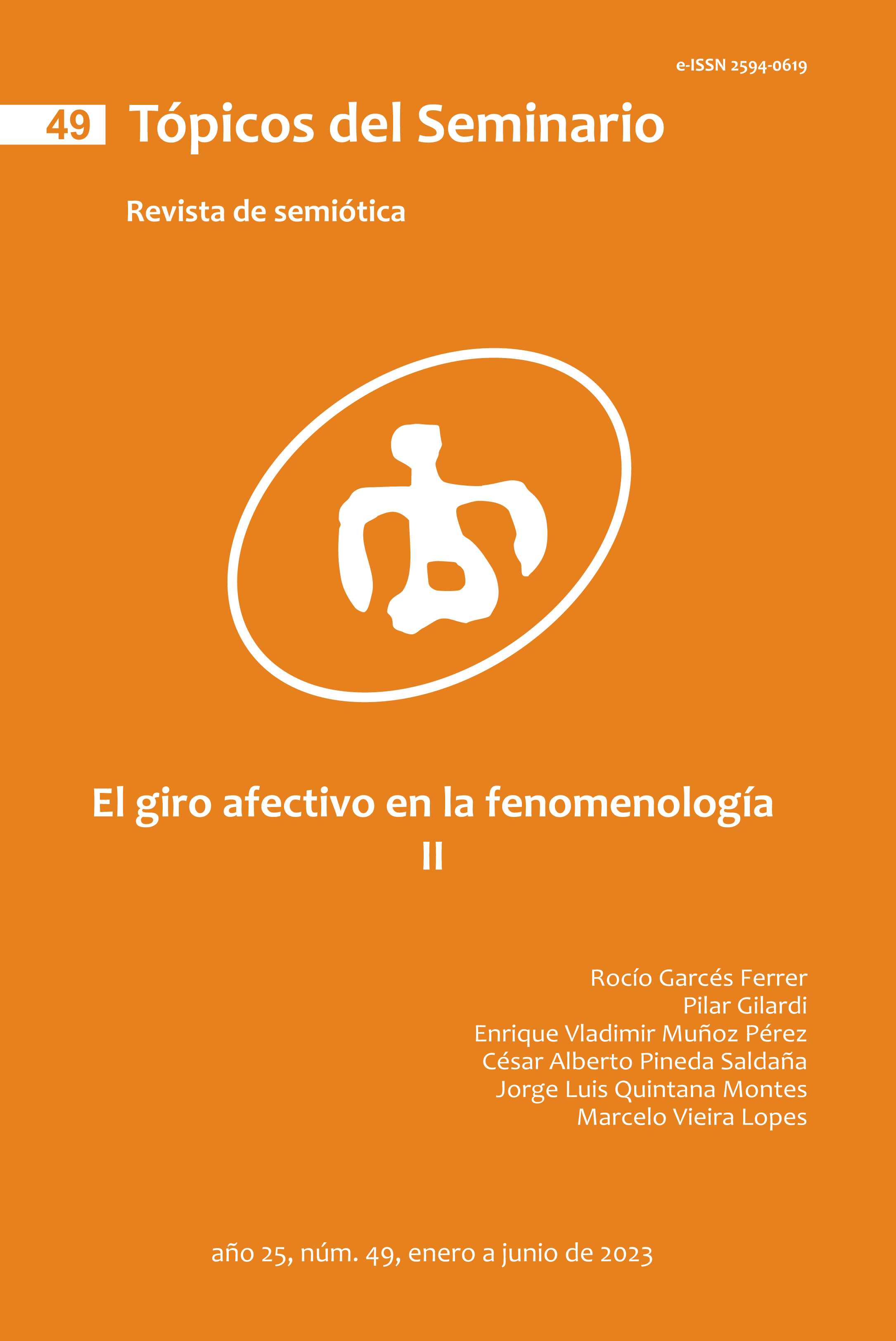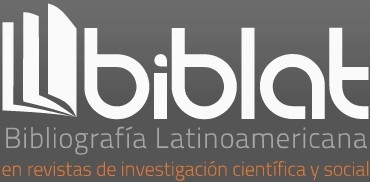Radical Action, Mobility and Forgetfulness of Affectivity: Notes about the Marcusean Reception of Sein und Zeit
DOI:
https://doi.org/10.35494/topsem.2023.1.49.849Keywords:
Marcuse, Heidegger, Mobility, Affectivity, Dasein, Radical ActionAbstract
The paper develops a critical sketch of the earliest Marcusean reception of Sein und Zeit, made by the Jewish philosopher between 1928 and 1929. To do this, firstly, we show the way in which Marcuse returns to Heidegger's concepts of care and mobility, to think about the radical action of the proletariat. Once this is done, secondly, we expose the way in which Marcuse obviates the problem of affective disposition, understood as the condition of possibility of passing from impropriety (capitalism) to the property of existence (non-capitalist societal configuration).
Downloads
References
Abromeit, J. (2019). The vicissitudes of the politics of ‘life’: Max Horkheimer and Herbert Marcuse’s reception of phenomenology and vitalism in Weimar Germany. Enrahonar (62), 39-58.
Aristóteles (1994). Ética a Nicómaco. (Griego-Español). Madrid. Centro de estudios políticos.
Aristóteles (1999). Retórica. Madrid. Gredos.
Becker, O. (2007). Heidegger Aristoteles-Seminare vom Sommersemester 1921 und vom Wintersemester 1922/23 (Nachschriften). En Denker, A., Figal, G., Volpi, F. & Zaborowski, H. (eds.). Heidegger-Jarbuch 3 (pp. 9-48). Freiburg/München. Karl Alber.
Brencio, F. (2018). Befindlichkeit: Disposition. En Stanghellini, G.; Raballo, A.; Broome, M.; Vincent, A.; Fusar-Poli, P. & Rosfort, R. (eds.). The Oxford Handbook of Phenomenological Psychopathology (The Oxford Handbooks Online). DOI: 10.1093/oxfordhb/9780198803157.013.39
Cárdenas, L. (2015). Retórica y emociones. La constitución de la experiencia humana del lugar. Bogotá. Aula de Humanidades.
De Lara, F. (2019). El diálogo de Heidegger con el primer proyecto filosófico de Marcuse. Enrahonar (62), 5-18.
Feenberg, A. & Leiss, W. (2007). Introduction. The Critical Theory of Herbert Marcuse. En H. Marcuse. The Essential Marcuse: Selected Writings of Philosopher and Social Critic Herbert Marcuse (pp. vii- xliii). Boston. Beacon Press.
Gilardi, P. (2015). Metafísica y Stimmung en la ontología fundamental de Martin Heidegger. En Xolocotzi, Á. (ed.). Studia Heideggeriana IV, (pp. 95-113). Bs. As. Teseo.
Heidegger, M. (1967). Sein und Zeit. Tübingen. Max Niemeyer.
Heidegger, M. (1976). Was ist Methaphysik? En Wegmarken (GA 9), (pp. 103-122). Frankfurt am Main. Vittorio Klostermann.
Heidegger, M. (1988). Ontologie (Hermeneutik der Faktizität) (GA 63). Frankfurt am Main. Vittorio Klostermann.
Heidegger, M. (2002). Grundbegriffe der aristotelischen Philosophie (GA 18). Frankfurt am Main. Vittorio Klostermann.
Heidegger, M. (2005). Phänomenologische Interpretation ausgewählter Abhandlungen des Aristoteles zu Ontologie und Logik (GA 62). Frankfurt am Main. Vittorio Klostermann.
Jaran, F. (2010). Toward a Metaphysical Freedom: Heidegger’s Project of a Metaphysics of Dasein. International Journal of Philosophical Studies XVIII (2), 205-227.
Kellner, D. (1984). Herbert Marcuse and the Crisis of Marxism, Londres. McMillan.
Marcuse, H. (1929). Ueber konkrete Philosophie. Archiv für Sozialwissenschaft und Sozialpolitik 62, 111-128.
Marcuse, H. (1959). The Ideology of Death. En Feifel, H. (ed.). The Meaning of Death. New York. McGraw-Hill.
Marcuse, H. (1974). Eros and Civilization. Boston. Beacon.
Marcuse, H. (1979). Triebstruktur und Gesellschaft. Frankfurt am Main. Suhrkamp.
Marcuse, H. (2005). Liberation from the Affluent Society. En New Left and the 1960s (III), (pp. 76-86). New York/London: Routledge.
Marcuse, H. (2006). One-Dimensional Man. London/New York. Routledge.
Marcuse, H. (2010). Contribuciones a una fenomenología del materialismo histórico. En Marcuse y los orígenes de la teoría crítica, (pp. 81-130). Madrid. Plaza y Valdés.
Ocay, J. (2009). Eroticizing Marx, Revolutionizing Freud: Marcuse’s Psychoanalytic Turn. Kritike 3 (1), 10-23.
Ocay, J. (2010). “Technology, Technological Domination, and the Great Refusal: Marcuse’s Critique of the Advanced Industrial Society”, en: Kritike 4 (1), 54-78.
Orejarena, J. (2019). La atestiguación de la existencia propia: Ser y tiempo y la fenomenología de la conciencia moral. En Xolocotzi, A. & Gibu, R. (coords.). Ser y tiempo de Heidegger, en perspectiva, (pp. 121-148). Bs. As. Biblos.
Romero, J. (2010). Herbert Marcuse y los orígenes de la teoría crítica. Una aproximación. En Marcuse, H. Marcuse y los orígenes de la teoría crítica, (pp. 7-80). Madrid. Plaza y Valdés.
Vigo, A. (2008). Arqueología y aleteiología y otros estudios heideggerianos. Bs. As.: Biblos.
Volpi, F. (2012). Heidegger y Aristóteles. Bs. As. Fondo de Cultura Económica.
Whitebook, J. (2004). The marriage of Marx and Freud: Critical Theory and psychoanalysis. En Rush, F. (ed.). Cambridge Companion to Critical Theory, (pp. 74-102). Cambridge: Cambridge University Press.
Xolocotzi, Á. (2007). Subjetividad radical y comprensión afectiva. CDMX. Plaza y Valdés.
Xolocotzi, Á. (2015a). Introducción: comprensión afectiva y temples fundamentales. Studia Heideggeriana IV, (pp. 9-20). Bs. As. Teseo.
Xolocotzi, Á. (2015b). Heidegger y el nacionalsocialismo. Crónica, panorama y problemas. En Xolocotzi, Á.; Gibu, R. & Santander, J. (coords.). La fragilidad de lo político. Ensayos fenomenológicos y hermenéuticos, (pp. 11-30) CMDX. ALDVS.
Xolocotzi, Á. (2019). Heidegger y el olvido de la retórica. Dianoia 64 (83), 27-47.
Downloads
Published
How to Cite
Issue
Section
License

Tópicos del Seminario is licensed under a Creative Commons Reconocimiento-NoComercial-CompartirIgual 4.0 Internacional License.














